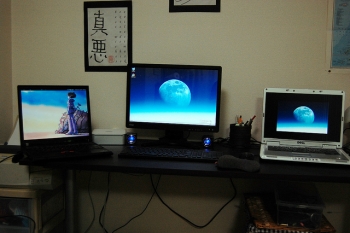Messages Across the World

Sending messages by telegraph or speaking by telephone is a very common thing for almost everybody nowadays. Every day thousands of people all over the world communicate with friends or business associates in distant countries by means of telegraph or telephone.
Men tried sending messages from one place to another long ago. They were sent by means of fire signals. The Romans used a light signal code. In Africa, even today, news is transmitted at night when the tomtoms talk.
Thanks to Samuel Morse we can send messages great distances in a few minutes. Morse was a painter but the study of electricity was his chief hobby. Like all true scientists he liked experimenting. At the same time he made a good living painting portraits. During an economic depression he gave up art. Then he began working systematically on the telegraph. He kept on working for five years though he had many disappointments. Despite all difficulties Morse succeeded in sending messages by electric telegraph and invented the dot-dash alphabet known as the Morse Code.
After a few years they started building the first telegraph line. It was completed in 1847 and led from Washington to Baltimore. Having built a telegraph system on land, the next step was to have a telegraph cable across the Atlantic in 1866. At the present time we have numerous modern ways of communicating.
Thanks to a great many skilful engineers and inventors methods of communication have greatly improved. Now we have radio, television, radar and the teleprinter to mention just a few. Computers have changed the world. When first developed, computers were not used in business. In the early 1960s computers began to be used to organize, store and process business information. In 1954 the first business application of a computer system was made for the processing of payroll. Today the payroll is just one of many computer operations.
There has been a rapid increase in the use of computers in almost every aspect of business: factory production, inventory control, warehousing, record-keeping and even in decision-making. Computers handle a lot of data rapidly and can efficiently categorize and process information for a variety of business operations. They have an almost unlimited capacity for processing business data. However, as computers cannot think, their role in business is limited to those areas in which they can process information more effectively and efficiently than human beings. Managers decide how computers and humans can be used most effectively to perform a particular business task.
